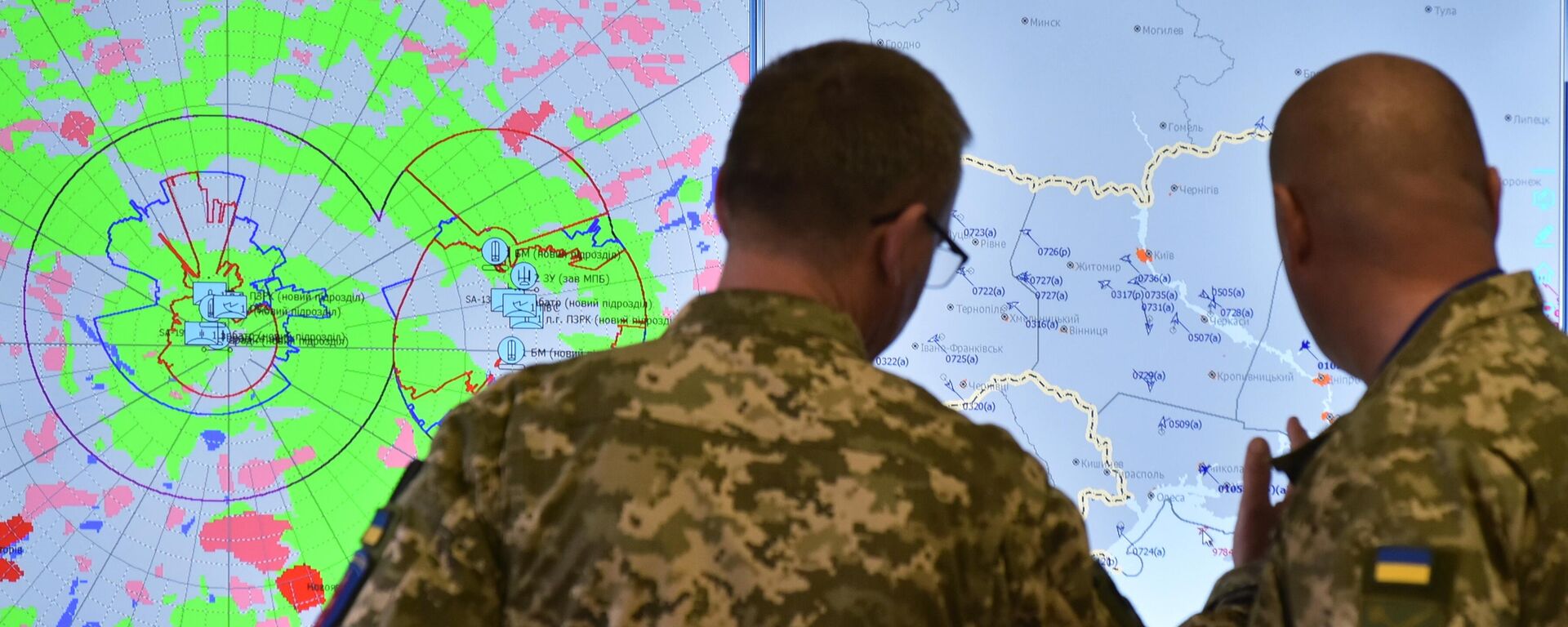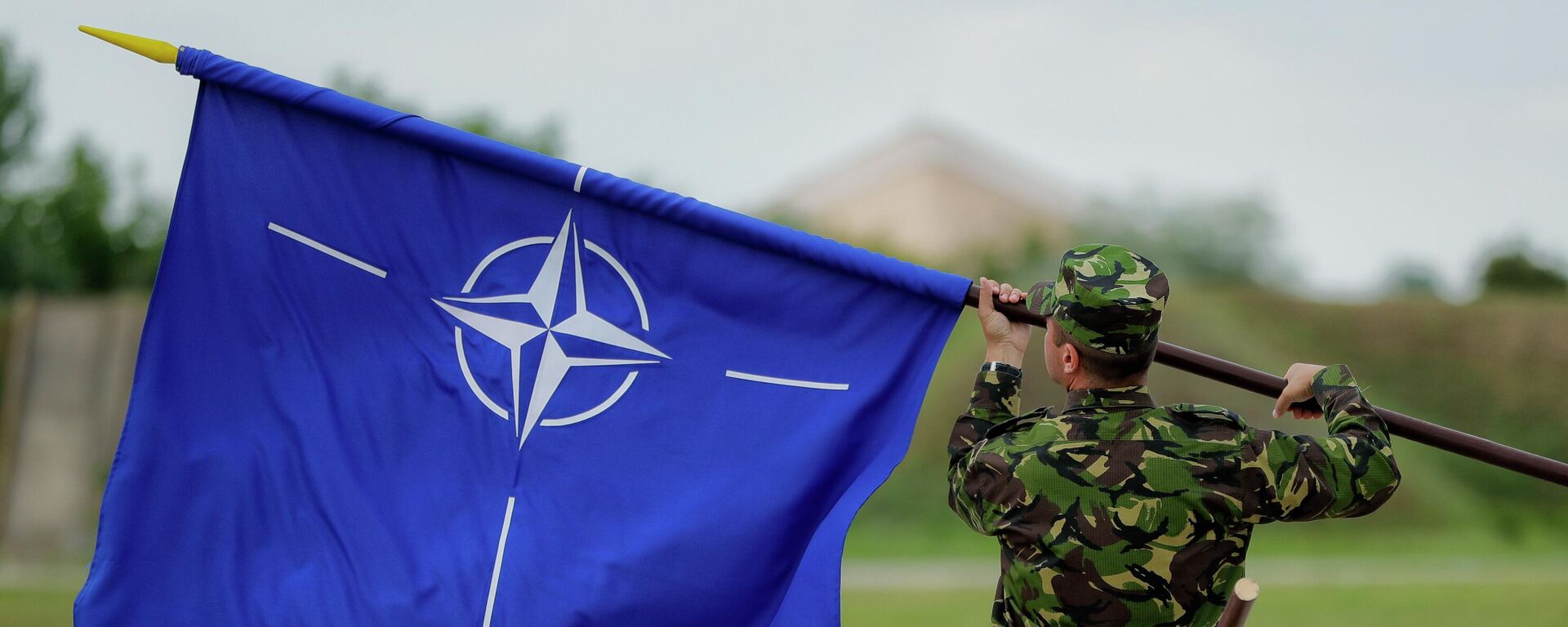NATO Turns 75: What is Its Real Purpose?
15:28 04.04.2024 (Updated: 11:52 06.04.2024)

© AP Photo / Mindaugas Kulbis
Subscribe
NATO has transitioned from being seen as a defensive alliance to becoming a clearly expansionist and interventionist military bloc over the past three decades, Sputnik's interlocutors say.
Exactly 75 years ago, the North Atlantic Treaty Organization was founded by the US, Canada, and several Western European nations, with the main aim of deterring and confronting the USSR, their former Second World War ally.
After the Soviet Union's collapse in December 1991, the conditions for a new inclusive security architecture in Europe and beyond emerged, according to Glenn Diesen, professor of international relations at the University of South-Eastern Norway.
"After the Cold War, we developed the format for a new inclusive security system," Diesen told Sputnik. "The Charter of Paris for a New Europe in 1990 and the establishment of the Organization for Security and Cooperation in Europe (OSCE) in 1994 were both based on the [1975] Helsinki Accords, and embraced the principles of sovereign equality, indivisible security, and ending the dividing lines in Europe."
The Helsinki Accords, signed during the Cold War by the US, Soviet Union, and several European countries, led to greater cooperation between Eastern and Western Europe. Even though the agreements weren't binding, they significantly contributed to the détente between the East and West.
Instead of building on that momentum, the US saw the end of the Cold War as the beginning of its unipolar moment, according to the professor: in 1992, George H.W. Bush proudly declared that the US had "won" the Cold War during his State of the Union address.
"The US also developed a security strategy based on hegemony, which required expanding NATO and thus cancelling the pan-European security architecture," Diesen said. "NATO therefore transitioned from a status quo power to a revisionist power. NATO required a new purpose, which became 'out-of-area' military interventionism and expansionism."
Overtly Aggressive Military Bloc
The next 30 years saw a string of NATO overseas military campaigns, neither of which has seen a comprehensive resolution, resulting in the creation of hotbeds of instability instead.
"During the 1990s, NATO turned from a conceptually defensive organization into an openly aggressive organization when it entered the Yugoslav wars and waged a massive bombing campaign there," Gilbert Doctorow, an international relations and Russian affairs analyst, told Sputnik.
"More generally, the United States was at this time preparing NATO to move out of its core geography in Europe and to assist US plans for global domination in the Middle East in the succession of regime change operations and open invasions that the United States planned and led."
Doctorow highlighted that these "out-of-region NATO operations were one disaster after another, ending in the withdrawal from Afghanistan after participation in a 20-year-long war directed by Washington."
NATO's Expansionism Led to Ukraine Conflict
Meanwhile, the alliance's seven waves of post-Cold War eastward expansion accelerated tensions in Europe, according to the Norwegian academic.
"Reviving the bloc approach to security and competing over where to draw the new dividing lines has been the primary source of conflicts in Europe for the past three decades and eventually resulted in the Ukraine war," Diesen said.
The academic pointed out that "by going along with NATO expansionism, the Europeans allowed their continent to be re-divided and remilitarized, which has predictably doomed Europe to greater irrelevance." He projected that Europe "will undergo systemic economic decline and become painfully subordinated to the US."
"We could exit this tragedy by reaching out to Russia to negotiate a new inclusive European security architecture devoted to reducing security competition instead of imposing hegemony," the professor emphasized.
Is NATO Sustainable?
"NATO exists to respond to the conflicts caused by its own existence," Diesen explained. "The problem now is that NATO is returning to great power conflicts with the same disastrous approach to security, based on hegemony rather than mitigating security competition."
Despite the Western mainstream media claims that the North Atlantic Alliance is united like never before amid the Ukrainian conflict, it is in fact not true, according to the professor.
"There are great tensions within NATO that simmers below the surface, and I do not think the hatred of Russia is enough to ensure unity after the war is over," he said.
"NATO victory in Ukraine is imperative as it had the stated objective of permanently weakening Russia and thus knocking it out from the ranks of great powers. This would revive the unipolar moment and collective hegemony of the West. Once NATO’s defeat is evident the cracks will emerge in the military bloc," Diesen pointed out.
Doctorow believes that despite all its declared, might the North Atlantic Alliance is on thin ice.
"NATO is in treading water, waiting for the tsunami that will send it to the bottom. That tsunami will either take the shape of a [US presidential candidate Donald] Trump victory in November or it will take the shape of an imminent collapse of the Ukrainian army or both phenomena simultaneously," the international relations analyst concluded.


